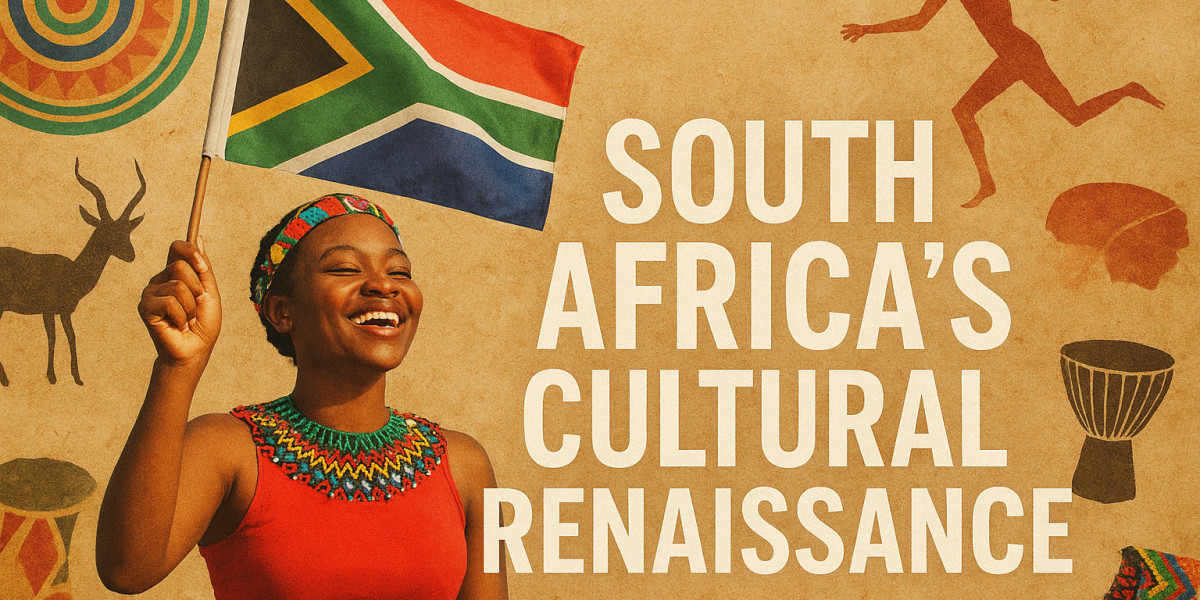South Africa stands at the intersection of history and modernity — a nation where diverse cultures, languages, and traditions blend into a vibrant mosaic of identity. Today, the country is witnessing a cultural renaissance that not only honors its heritage but also redefines it for the digital age.
A Tapestry of Cultures and Traditions
With 11 official languages and a multitude of ethnic groups, South Africa’s cultural landscape is among the most diverse in the world. Each community contributes to a shared narrative of resilience, creativity, and unity. From Zulu beadwork to Xhosa music and Afrikaans literature, every cultural element forms a thread in the nation’s evolving identity.
This revival is not just about celebrating the past but ensuring that indigenous art forms and practices thrive in modern spaces. Across provinces, cultural councils and creative hubs are bringing back traditional dance, crafts, and storytelling — ensuring that South African youth understand their roots.
Language: The Living Heritage
Language plays a powerful role in shaping heritage. South Africa’s multilingualism has long been a symbol of unity and inclusion. However, as globalization grows, native languages face challenges of preservation. Schools and universities are increasingly integrating indigenous languages into curriculums to ensure they remain active in everyday communication and cultural expression.
Digital platforms have also become new guardians of language preservation. Online communities and apps are emerging to teach isiZulu, Sesotho, and Tshivenda, bridging generational gaps and helping citizens reconnect with their ancestral tongues.
Art as the Voice of a New Generation
Modern South African artists are redefining cultural expression. Through painting, fashion, film, and performance art, they are blending heritage motifs with futuristic styles. Art festivals like the National Arts Festival in Makhanda and Design Indaba in Cape Town have become powerful spaces where tradition meets innovation.
These events not only celebrate heritage but also create economic opportunities. They provide a platform for artisans and creators to share their stories with the world — stories that often explore identity, resistance, and transformation.
Heritage in the Digital Age
The digital era has given South Africa’s heritage a new voice. Museums, galleries, and archives are embracing technology to make culture accessible to everyone. Virtual exhibitions, online documentaries, and digital storytelling have opened doors to audiences across Africa and beyond.
Social media platforms like Instagram and TikTok have turned young South Africans into cultural ambassadors. From showcasing traditional attire during Heritage Month to reviving indigenous hairstyles and recipes, digital heritage storytelling is preserving identity in creative ways.
Preserving Indigenous Knowledge
Beyond art and language, South Africa’s indigenous knowledge systems are a vital part of its identity. Communities are working with researchers to document ancient medicinal practices, agricultural wisdom, and ecological traditions. These practices are not only culturally significant but also crucial for environmental sustainability and local economies.
Efforts by cultural organizations to integrate this wisdom into education and policy reflect a growing understanding: heritage preservation is not about nostalgia — it’s about resilience.
Festivals: Celebrating Unity in Diversity
From the Cape Town International Jazz Festival to the vibrant Soweto Wine & Lifestyle Festival, South Africa’s cultural calendar is rich with celebrations that honor diversity. The annual Heritage Day, fondly known as “Braai Day,” is a national symbol of unity — reminding citizens that while their traditions differ, their sense of belonging remains shared.
These festivals encourage cross-cultural appreciation and play a key role in strengthening social cohesion. They remind South Africans that cultural heritage is not static — it evolves with every generation.
Education and Cultural Awareness
South Africa’s education sector is taking an active role in promoting cultural awareness. Schools now include heritage-based projects and local history studies, fostering pride among students. Universities have established research centers focusing on language, anthropology, and indigenous innovation.
This academic engagement ensures that the lessons of the past inform the growth of future leaders — individuals who respect their heritage while navigating global challenges.
Tourism and Heritage Economy
Cultural tourism is emerging as a major driver of South Africa’s economy. Visitors from around the world come to experience the country’s music, cuisine, and art. Sites like Robben Island, the Cradle of Humankind, and the KwaZulu Cultural Museum stand as living testaments to South Africa’s history and humanity.
By investing in heritage tourism, South Africa is not only preserving its cultural assets but also empowering local communities. Rural areas benefit from tourism-based entrepreneurship, while urban centers experience renewed appreciation for their historical districts.
The Path Forward: A Shared Identity
South Africa’s cultural renaissance is more than a trend — it’s a movement towards unity, understanding, and pride. As the nation continues to evolve, its people are learning that progress and heritage can coexist harmoniously.
The revival of cultural pride in South Africa sends a strong message to the world: that a country’s strength lies not just in its economy or technology, but in its ability to cherish and protect the stories that shaped it.
Heritage, when preserved and celebrated, becomes the heartbeat of a nation — and South Africa is once again dancing to that rhythm.
Discover more stories celebrating African heritage, culture, and identity at Heritage Voice Mauritius








